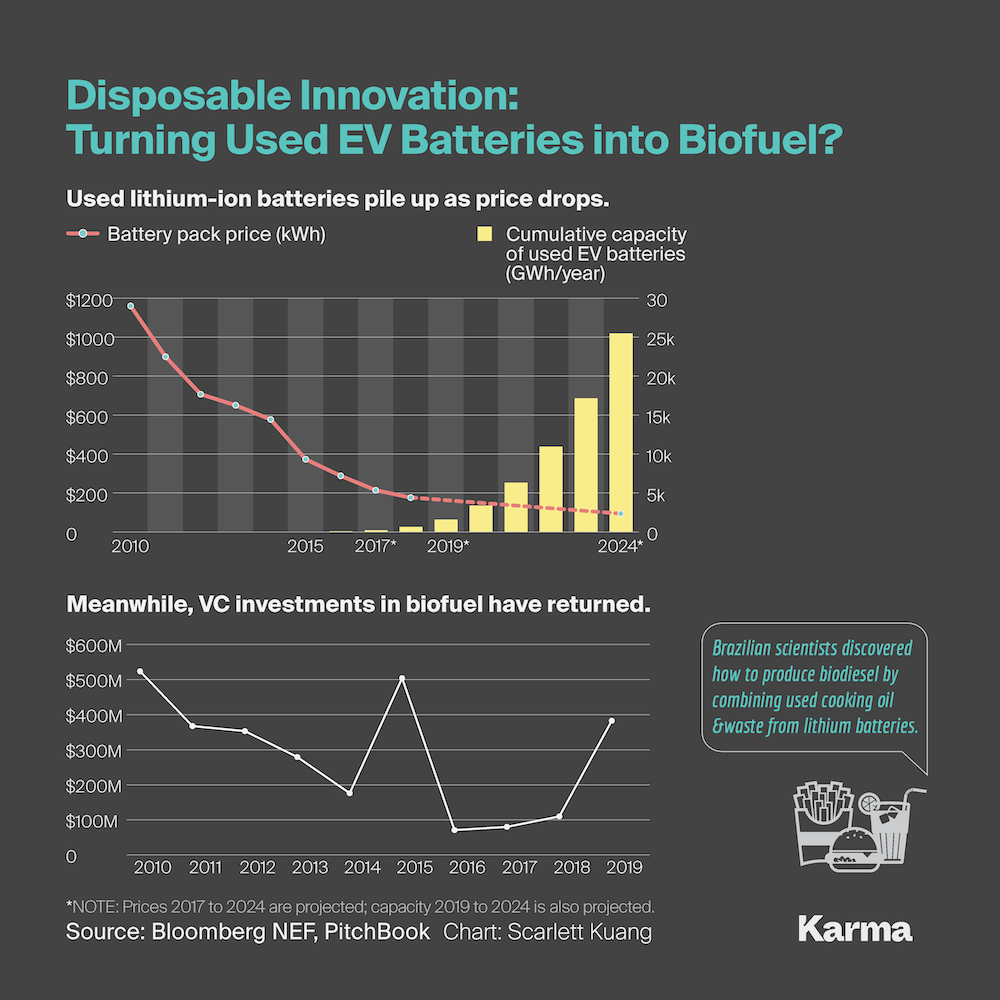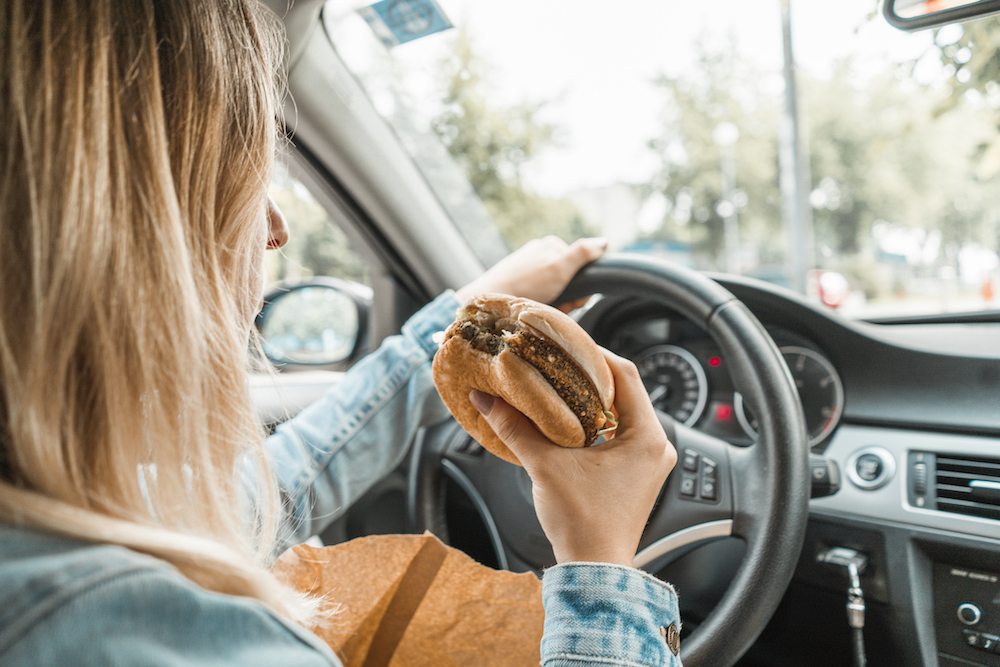- Scientists create biofuel using waste from used cooking oil and lithium batteries.
- Innovative ways to create biofuels are seen as growth area for green investors.
- Process may alleviate problems such as disposing of toxic used batteries and getting rid of so-called yellow grease, most of which is dumped inappropriately.
Next time you eat fries at a fast food joint while checking your texts, consider that you may simultaneously be helping the planet.
A group of scientists in Brazil recently showed how they produced biodiesel by combining used cooking oil and waste from lithium (Li-Ion) batteries, the types found in personal electronic devices and electric vehicles (EVs). Their study’s results were published in the Journal of Renewable and Sustainable Energy. The process has proven initially to be “viable, advantageous, and strategic,” the paper’s researchers, headed by Gilberto Maia de Brito, wrote. “It plays a key role in the disposal of the waste process, considering an alternative for the use/disposal of this lithium within a sustainable chain.”
Maia de Brito told Karma in an email that the idea of combining the two substances grew out of work in an organic chemistry class he was teaching for graduate-level environmental engineering students on how to make biodiesel fuel from waste cooking oil. Eventually, he struck on the idea of using Li-ion battery waste as a catalyst.
From there, he added, “I wrote a project in 2013/2014 and submitted it to the Brazilian funding agency called FAPES (Espírito Santo Research and Innovation Support Federation), here in the city of Vitória, and it was approved for 12 months.”

To date, no commercial venture exists to capitalize on the researchers’ finding, according to Maia de Brito. However, the discovery provides a viable way to create a product from two types of waste while lowering greenhouse gas emissions from diesel exhaust, limiting the dumping of oil down drains, which damages plumbing, and keep Li-ion batteries, whose heavy metals and organic compounds can severely damage both humans and ecosystems, from ending up in landfills.
With the surge in personal devices and EVs, more and more Li-ion batteries are needed. However, less than 5% are recycled, according to Chemical & Engineering News. “As the popularity of electric vehicles starts to grow explosively, so does the pile of spent lithium-ion batteries that once powered those cars. Industry analysts predict that by 2020, China alone will generate some 500,000 metric tons of used Li-ion batteries and that by 2030, the worldwide number will hit 2 million metric tons per year,” wrote the publication.
The Brazilians’ research might also help increase the value of restaurants’ oil waste, called yellow grease, already such a hot commodity in the U.S. that rings of thieves regularly steal it. Specialized U.S. companies train restaurant workers in how to store yellow grease so it can be bought and recycled. In Brazil, however, recycling of used cooking oil is uncommon, said Maia de Brito. Some nine billion liters of yellow grease are produced annually there, he added, of which less than 1% is disposed of properly.
But take heart, that may change. While you’re thinking about all this, don’t skimp on fried foods and texting.






















